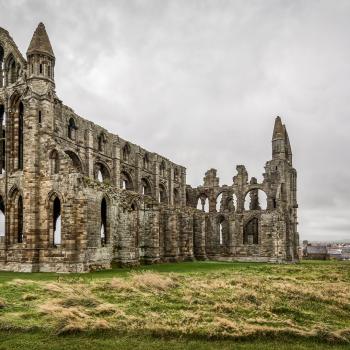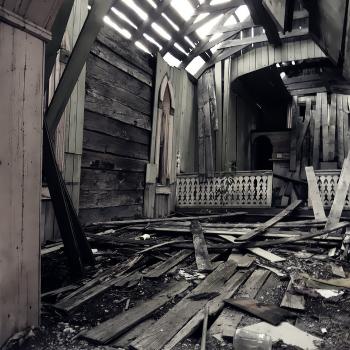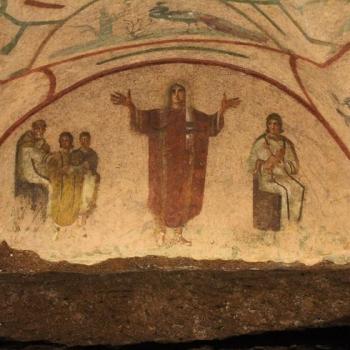“Why, O Lord, do you stand off? Why do you hide yourself in times of trouble?”
The deaths of 68 young people at a camp in Norway silences us with horror and grief. The looming menace of the federal government’s default makes us stoop with dread and frustration. The drought and famine in Somalia appalls and saddens us. Violence in Afghanistan, cholera and reconstruction in Haiti, the loss and destruction in Japan, the increasing political tension in Venezuela, the arrest of political dissidents in China, and on and on, all of it big and frightening.
“They think in their heart, ‘God has forgotten, he has hidden his face, he will never see it.’”
It’s so easy to believe that we’re on our own. Most Americans, no matter what religion they affiliate with on the latest Pew Research poll, are functional deists. Deists tell us that there may perhaps be a God, somewhere, who does God-like things, somehow, but that that divine entity is not watching us, is not caring for us, has no opinions about our choices or behavior, has left us to figure things out – and manage disasters – on our own. Any “believer,” no matter his or her doctrine or creed, who acts on a day-to-day basis without reference to the desires or commands of God, is a functional deist.
There is no ojo de Dios, no eye of God, that we can point to, peering at us through the blackness of the night, parting the clouds of day for a direct line of vision. Yuri Gagarin went up there and found no divine face, no watching God. The Helix Nebula, often called the Eye of God, is a cloud of gas and dust, and does not blink, does not roam the earth, does not weep.
If God has gone off to do God-things somewhere else in space and time, so be it. We can pull together some modicum of justice and compassion, remnants of our divine source, by which to run this world. But sorrow is so very great, and our efforts so roundly defeated by evils internal and external. It all makes me want to sit in a corner somewhere.
“But you do see!”
Nothing escapes God’s vision. Not the great troubles of the world, and not the desperate groping of the unemployed, and not the grieving parent, and not the bullied child, and not the overworked businessman, and not the elderly widow. Nothing is so small that it’s unimportant to him, and nothing is so large as to dismay him.
“Indeed you note trouble and grief, that you may take it into your hands; the helpless commit themselves to you; you have been the helper of the orphan.”
The Lord takes trouble and grief into his hands. Not only does he see, he is not a passive observer. God is at work, engaged in our suffering, bearing our wounds, bringing relief, strengthening hearts, provoking goodness, protecting us from evil. The helpless who commit themselves to God find help. No, the cancer does not magically disappear; the employer does not call as soon as you say Amen; the bills still accrue; the next day’s paper has a fresh array of mayhem to feast on. But the commitment has changed everything.
“O Lord, you will hear the desire of the meek; you will strengthen their heart, you will incline your ear to do justice for the orphan and the oppressed, so that those from earth may strike terror no more.”
The war on terrorism goes on, but it is not the war that we read about in the news. It is the war against the hopelessness and despair that tell us that God does not see or care.














